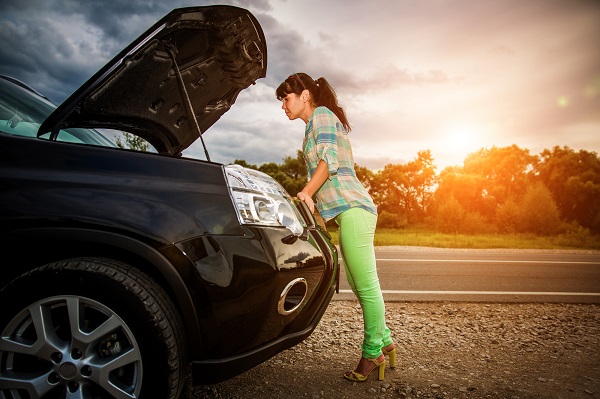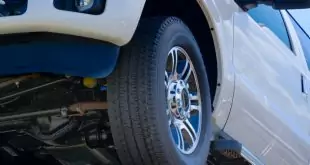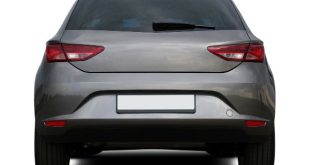The longer you have your license and drive a vehicle, the more likely it is you’ll deal with car trouble at some point. Hopefully, the problem will be something relatively minor, like a flat tire, and not something more severe, like the battery dying or another vehicle plowing into you.
If you have car trouble while traveling, though, that can be more challenging than if your vehicle breaks down a few blocks from your house. You might be hundreds of miles from home, or even further than that.

Let’s talk about what you can do if you’re traveling and you run into car trouble. Maybe this will never happen to you, but it’s good to know what to do if it ever does.
Flat Tires
Flat tires are definitely one of the most frequent car problems you might encounter. They can be more dangerous than you might realize. Tire blowouts cause more than 700 vehicle accident fatalities each year.
You might experience a blowout while you’re on the highway, and you could careen into another lane, causing another vehicle to hit you. A car could also hit you when you’re on the side of the highway, trying to replace the tire.
If you’re traveling and your tire goes flat, you should pull over to the side of the road rather than trying to drive on it. If you have a spare, you can try to replace it, but only if you have the know-how, the tools, and you’re well out of passing traffic’s way.
You can also call AAA if you’re a member. You might have car trouble assistance if you have certain credit cards. The Chase Sapphire Reserve or United Club Infinite Card are two examples.
You can also use your smartphone to call for a tow truck if you’re in an unfamiliar area and you don’t have one of the services we mentioned. They can probably send one to you before too much time has elapsed.
One more option is to find a call box. They often have them along the highway at regular intervals, and you can pick up the phone and tell the operator the problem you’re having and to send help.
Dead Batteries
A dead battery is another car problem you might have while traveling. Usually, you try to start the car, and it won’t respond.
This is generally a safer scenario than a flat tire because a flat can happen when you’re out on a deserted highway stretch somewhere. If you try to start your car and the battery is dead, you’re probably already in a parking lot or somewhere out of traffic’s path.
You can use jumper cables to restart the battery if you can find someone to help you, and either one or the other of you has cables and knows how to use them. It’s not a complicated procedure, but not as many people know how to do it these days. You can certainly watch some videos on YouTube if you want to learn how.
If you can’t find someone, or you don’t have jumper cables, you can use your smartphone to call for roadside assistance. If your phone is dead, or you don’t have it with you, you can head to a gas station or restaurant and call for help if there is one nearby.
Other Considerations
You also might get in an accident while traveling. The same rules apply as if you got in a wreck close to home. You’ll need to exchange insurance information and wait for the police to arrive.
There are few differences between car trouble while traveling and vehicle problems when you’re close to home, except that you’re in unfamiliar territory. If you rented the car in which you’re traveling, you’ll need to contact the agency from which you rented it in addition to the other steps you’ll have to take.
You should make sure your car is in excellent condition before going on a long road trip. If you haven’t gotten anyone to inspect your vehicle in a while, take it for a tune-up before you go.
You might consider carrying a spare tire and jumper cables in the trunk. You should also think about storing some tools back there, plus a blanket, flashlight, and anything else you think you might need.
The better prepared you are before you travel, the better it is for you. If you have unexpected car problems, at least you’ll know what to do.
 World inside pictures Collect and share the best ideas that make our life easier
World inside pictures Collect and share the best ideas that make our life easier








